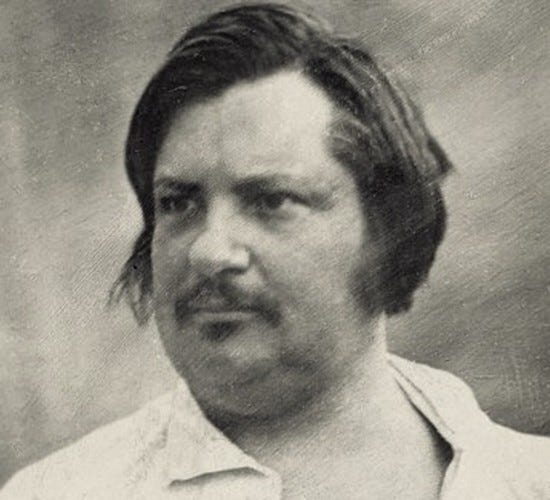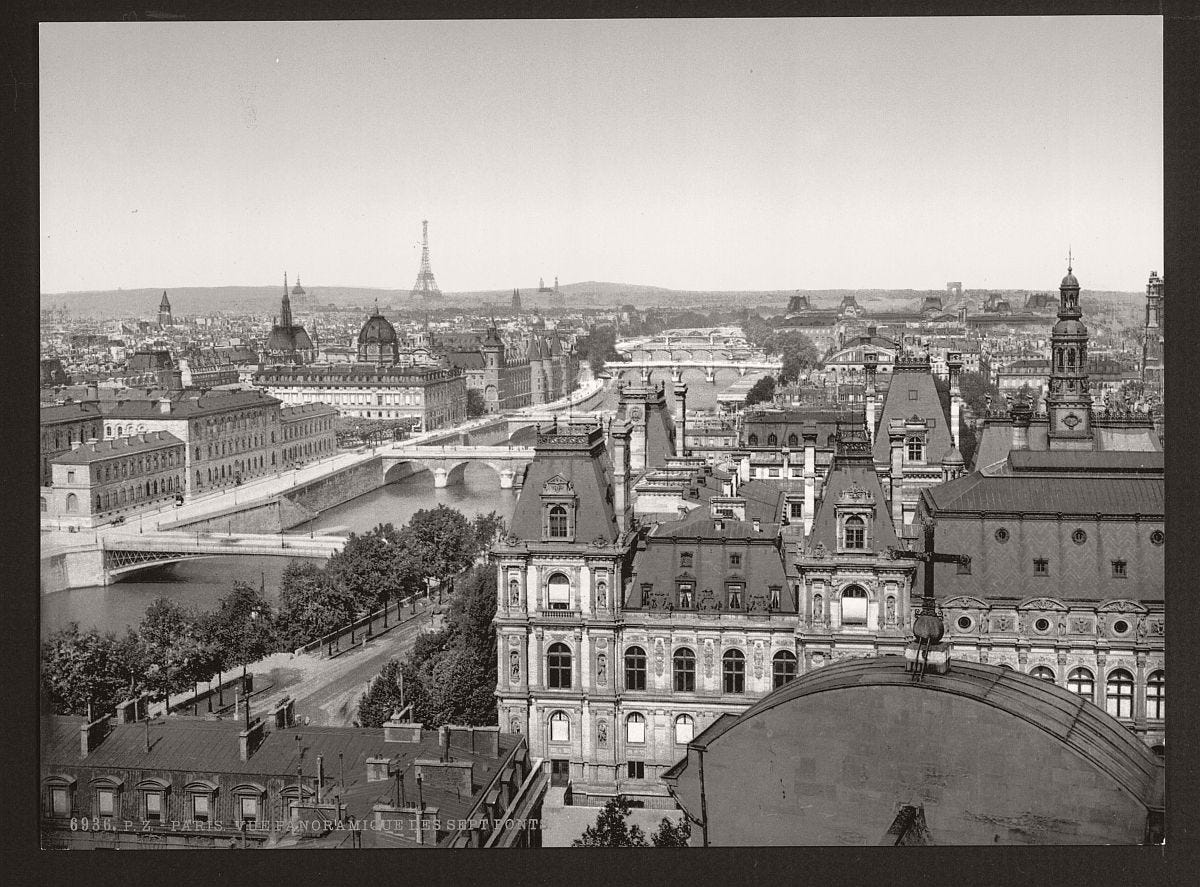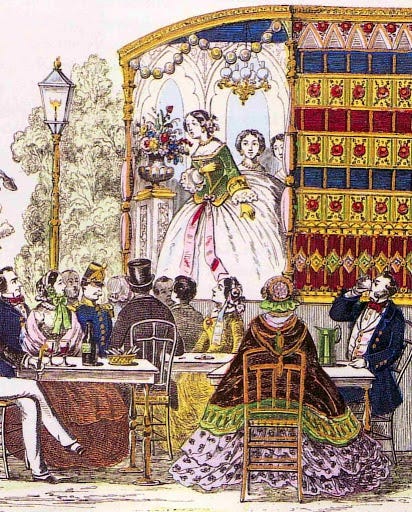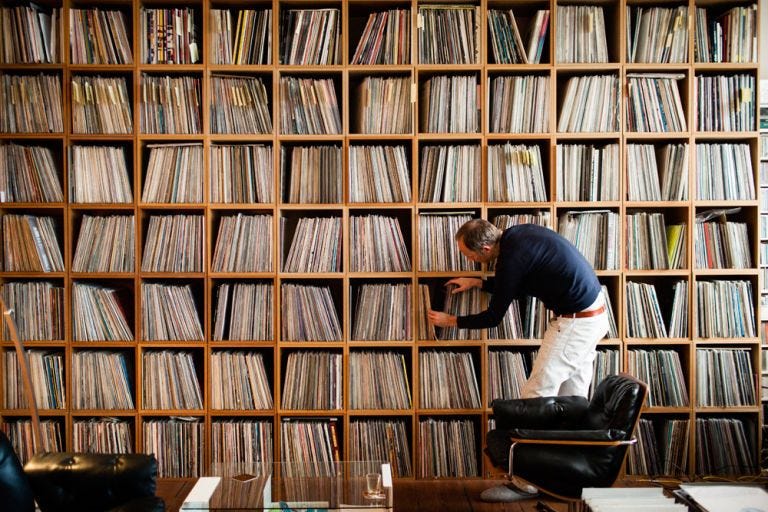🤬Angry French Composers & Blanket License in Music
The tale of how an angry French composer 🇫🇷 in the 19th Century gave birth to the modern blanket license in the music industry.
We write a daily newsletter on all things Music, and the Business and Tech behind it. If you’d like to get it directly in your inbox, subscribe now!
What’s good everyone?
I know I have stepped my foot off the gas since the last few days in terms of putting out newsletters (safely assuming you’ve been reading them 😉)
However, here at Incentify, we have been tied up with the development of a product we are building that lets users share playlists and discover new music in a platform-agnostic manner 📲
We can’t wait to bring it to you soon enough, DM us on Instagram or Twitter for more on that, and get an exclusive sneak peek into what we are building 👀
For today’s newsletter, I recently came across this interesting anecdote of how in the 19th Century, an angry French composer- Ernest Bourget was denied his favorite drink in a Parisian Cafe 🍸 and gave birth to what is the modern blanket license in the music industry.
But what’s a blanket license and how did this come along in 19th Century Paris?
Let’s get into it 👇🏻
Discovered in my weekly readings of Tarzan Economics by Will Page- a book I often quote on here; the legend goes that around the year 1847 in Paris, the business of shows, or what we now call 'Show Business' was booming 👯♀️
Paris was experiencing the growth of the Industrial Revolution and the new middle class took up live entertainment and cafe concerts.
These concerts, or 'Cafe Conc' as the French would call it, were hugely popular thanks to the complementary nature of what was on offer - music, food, and beverages 🎶 🍰🍷something which seems obvious for most restaurants around the world now, but was practically unheard of, back then.
Page writes about it in his book 👇🏻
“Imagine we are sitting in one of these Parisian cafes back in 1847 and the composer Ernest Bourget walks through the door and takes a seat to enjoy the show. We are about to witness a pivotal moment in the history of intellectual property.
Bourget has journeyed this evening to the Café Morel. As he sits at his table, a musical performance is reaching its climactic end.
A large crowd of patrons are rapt, diverting their attention only to sip from their overpriced drinks and nibble on their expensive starters.
Bourget is gratified to observe that the song that has so captured the attention of the diners is one of his own compositions.
When the echoes on the final notes have died out, the crowd erupts in rapturous applause. Bourget gestures for a waiter and orders an eau sucré - essentially a glass of lightly flavoured sugar water.
However, Bourget is shocked when the waiter refuses. In the name of increased profits Café Morel has a policy:
After dark, guests may only order drinks which do not 'deceive the corkscrew', which is to say that after dark the cafe serves only wine, on which they make a better profit.
Bourget is furious.
Here is the cafe entertaining its paying guests with Bourget's music and not only has he not been paid a penny for using his work, they wont even serve him his favourite drink
Sounds insane right?
Bourget sent a letter to the proprietor of the Café Morel, informing him that he would prohibit the representation of all his work for the singers at his cafe.
Bourget listed his compositions, making him the first composer to begin the formation of what is now called a global repertoire database.
When Café Morel failed to reply, Bourget escalated his case for compensation to the Tribunal de Commerce de la Seine and Cour d'Appel de Paris, both judiciary bodies in Paris, which ordered Café Morel to pay Bourget a total of 800 francs 💰
With that decision, copyright licensing for the public performance of music was born.
Bourget's legal victory for composers was helped by the precedent that had already been set for literary authors 📚
A few years prior to the famous Bourget incident, the authors- Victor Hugo and Honoré de Balzac lobbied to prohibit the reading of their books aloud in public squares as this would be deemed a public performance - a very early case of piracy.

The judge opined to Bourget that he needed 'good fortune' to impose the ruling. This meant that the performing rights needed to be enforced, and the monies generated needed to be collected.
Bourget would need to set up a mechanism to ensure that anyone and everyone who fell under the ambit of using music in a public setting for commercial purposes, be duly enforced to pay the necessary copyright monies.
Bourget would go onto discover that, bargaining and enforcement costs of acting alone overtook the monetary benefits of the copyright money he had been awarded. There needed to be a better and scalable way to enforce this.
The solution?
Rather than acting alone, he formed a collective blanket.
On 18 March 1850, roughly 3 years after the original incident, Bourget joined forces with fellow composers Victor Parizot, Paul Henrion and publisher Jules Colombier, to form what would become La Société des Auteurs, Compositeurs et Éditeurs de Musique - the world's first music copyright collecting society.
By creating a one-stop shop for acquiring licenses from the copyright holders, SACEM (as it would be renamed in 1851) drastically reduced the transaction costs for music licensing.
The real benefit of Bourget's battle was the invention of the 'blanket license'.
Page writes in the book:
As the name suggests, the blanket covered all of the bed, giving the buyer the right to use all of the world's copyrights in one seamless transaction and removing any liability - a 'one-stop shop' for an industry that would otherwise be stuck in gridlock.
Paying for intellectual property couldn't be made any easier, meaning more composers got paid more money than would otherwise be the case.
This very logic of a blanket music copyright license, pioneered in a Parisian Cafe in the 19th century, now forms the basis for enabling restaurants, barbershops, cafes, and other places of public gatherings to reproduce music copyrighted by artists, without having to deal with individual artists themselves.
History is a funny subject right?
If you liked this newsletter from Incentify, why not share it with someone you like?
P.S- Follow us on Instagram and Twitter for more such content on all things Music and Culture, now!









